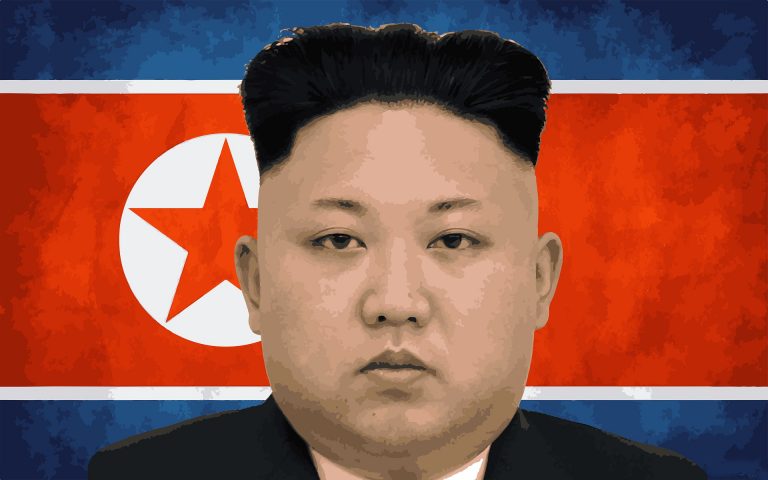North Korea’s economy saw the biggest contraction in over three decades according to figures released by South Korea’s central bank, the Bank of Korea (BOK). The Kim Jong Un region slumped back by 4.5 percent last year after growing by 0.4 percent in 2019 for the first time in three years.
BOK’s economic estimates of the North Korean economy are considered to be the most accurate since Pyongyang itself does not disclose economic statistics. BOK started releasing these figures from 1991. The biggest decline in North Korea took place in 1997 when the economy fell by 6.5 percent in the midst of a famine. The 2020 decline is also the biggest downturn under Kim Jong Un’s regime.
“Along with the continued intense U.N. sanctions, North Korea’s lockdown measures to fight the coronavirus pandemic … and worsened weather conditions such as heavy rains and typhoons were the main drivers to the contraction,” a BOK official told reporters.
The official also pointed out that Pyongyang’s COVID-19 restriction measures included a ban on domestic travel, restricting entry into the country, and 30-day quarantine for those who showed symptoms of infection. These measures are believed to have severely affected the country’s manufacturing and services sector.
The North Korean mining industry declined by 9.6 percent in 2020. One of the biggest exports from North Korea to China is anthracite, the mining of which was affected in the latter half of last year when typhoon-triggered floods caused havoc to a critical mining region. The fishing and forestry industry fell by 7.6 percent due to heavy rains, floods, and the pandemic.
Success
You are now signed up for our newsletter
Success
Check your email to complete sign up
The services industry, accounting for a third of the economy, contracted by 4 percent. Industrial output, which accounts for 28 percent of the economy, decreased by 5.9 percent. In 2020, the country’s foreign trade is estimated to have fallen by 73.4 percent.
According to recently released Chinese customs data, North Korean exports to China slumped 67.3 percent in the first half of 2021. In the months of March and April, China’s imports from North Korea had fallen 90 percent compared to the same period last year.
“The larger economic context certainly shows Pyongyang getting backed into a corner… Sanctions were clearly impacting the North Korean economy prior to COVID-19, but the closure of the border with China to curb the spread of the coronavirus has done much more to stymie the North Korean economy,” Kyle Ferrier, director of academic affairs at the Korea Economic Institute of America, said to Bloomberg.
Food crisis
The economic contraction comes as North Korea is facing a severe food shortage. In a party conference in April, Kim had asked citizens to prepare for hard times and seemed to have compared the food situation to the 1990s famine that killed hundreds of thousands of people. Some estimates put the death toll at three million. He called for waging another ‘Arduous March,’ a term used in the country to refer to the struggle against the 1990s famine.
In June, Kim Jong Un again warned that the country’s food crisis was getting worse. “The people’s food situation is now getting tense as the agricultural sector failed to fulfill its grain production plan due to the damage by a typhoon last year,” he said at the plenary meeting of the ruling Workers’ Party’s central committee.
A June 15 report by NK News cites bananas costing $45 per kilogram. In April, the price of corn, which is the staple food for most rural North Koreans, is said to have been so volatile that a kilogram sometimes costs more than a month’s wages.
In a report published by Human Rights Watch in March, Senior Researcher Lina Yoon quoted a missionary working in North Korea as saying that “there is barely any food going into the country from China for almost two months now… There are so many more beggars, some people died from hunger in the border area and there’s no soap, toothpaste, or batteries.” Without batteries, people were unable to even keep track of time.
Tomas Ojea Quintana, UN Special Rapporteur on North Korean Human Rights, published a report in March in which he warned that floods which affected the country last year could lead to a “serious food crisis.” He pointed out that the undernourishment rate in North Korea between 2017 and 2019 was 45 percent according to the United Nations Food and Agriculture Organization.
“Deaths by starvation have been reported, as has an increase in the number of children and elderly people who have resorted to begging as families are unable to support them,” the report said.
A May report by the Assessment Capacities Project, a Geneva-based nonprofit, calculated that almost 10 million people in the country are in need of humanitarian assistance.







